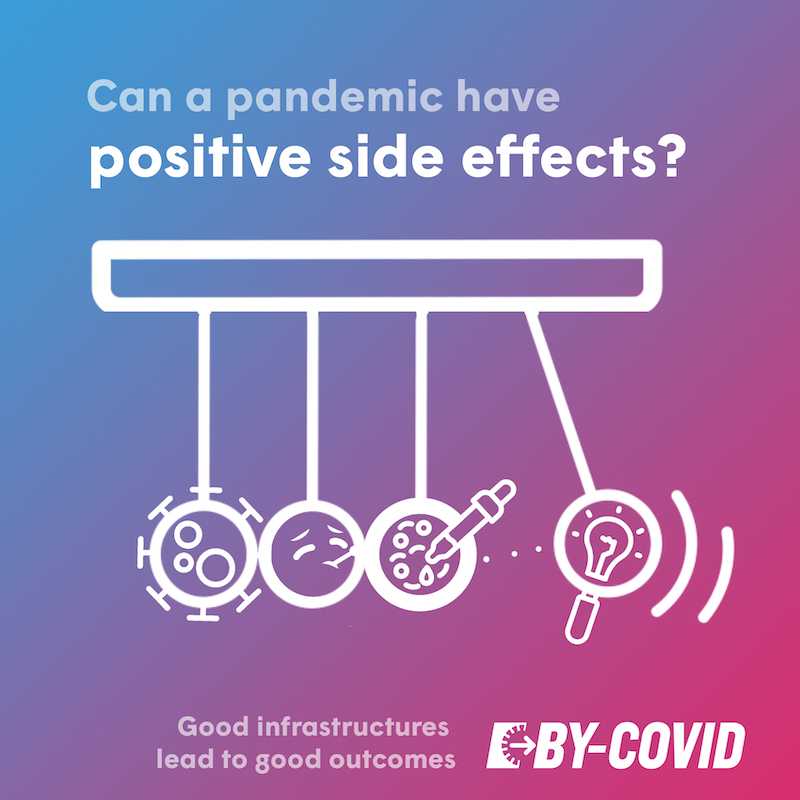
Can a pandemic have positive side effects?
Have you ever been looking for something specific in a messy room and stumbled upon something unexpected? This is a common phenomenon in the world of research, where some studies carried out for a specific purpose turn out to be useful for something else. If scientific data are sufficiently numerous, accessible and well processed, it not only makes the research better, but also opens up possibilities for re-use of the data in new studies.
SOME EXAMPLES OF (RE)DISCOVERIES
The COVID-19 pandemic mobilised researchers, institutions and data from all over the world and has led to advances in many areas. For example, existing methods, like PCR tests and messenger RNA vaccines, were validated on a massive scale during the pandemic, and are now easier to apply to other diseases (PCR tests for monkeypox and messenger RNA vaccines for the treatment of certain cancers).
Artificial intelligence (AI) and Open Science, a movement to make science widely accessible, both existed before the pandemic but were deployed in an unprecedented way leading to further development. Scientists saved months of experimentation thanks to predictions of the virus structuregenerated by AI, which also helped with genome sequencing and predicting the evolution of the pandemic.
In terms of Open Science, the crisis has accelerated the move away from restricted and conditional access to knowledge. Essential information about the virus has been made available to everyone, allowing a better understanding of the disease and the rapid manufacture of vaccines, diagnostics and treatments.
BY-COVID AS A VECTOR FOR SCIENTIFIC PROGRESS
These advances are only possible with a good data infrastructure that allows researchers and institutions to work together to provide readily available data to support discovery and decision making.
One way the BY-COVID project is promoting Open Science is by contributing to the European Open Science Cloud (EOSC), which “aims to develop a Web of FAIR Data and services for science in Europe upon which a wide range of value-added services can be built.”
By bringing together many countries, researchers and institutions and by making the data accessible, BY-COVID is creating an infrastructure to enable positive things to come out of the pandemic.
MORE INFO ON…
RNA vaccines
New cancer treatments may be on the horizon—thanks to mRNA vaccines
AI
AI and control of Covid-19 coronavirus
https://www.swissinfo.ch/eng/artificial-intelligence-helps-bring-about-record-fast-vaccines/46256752
Open Science
Open science saves lives: lessons from the COVID-19 pandemic | BMC Medical Research Methodology
How COVID-19 had an impact on research
How will COVID-19 reshape science, technology and innovation?
The impact of COVID-19 on research - PMC